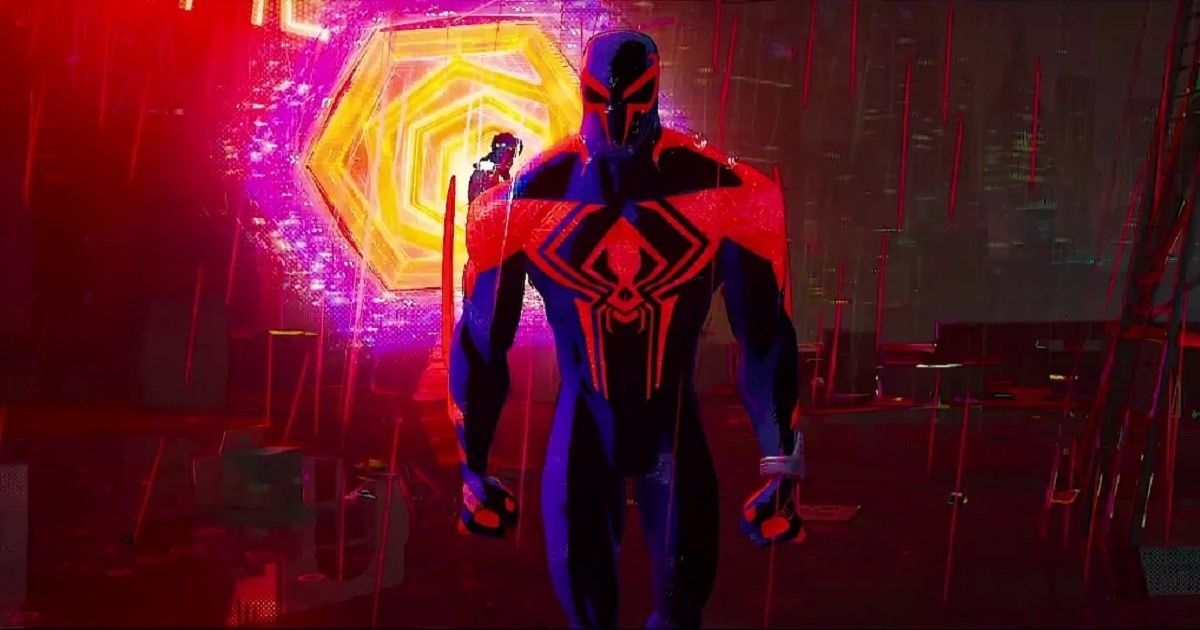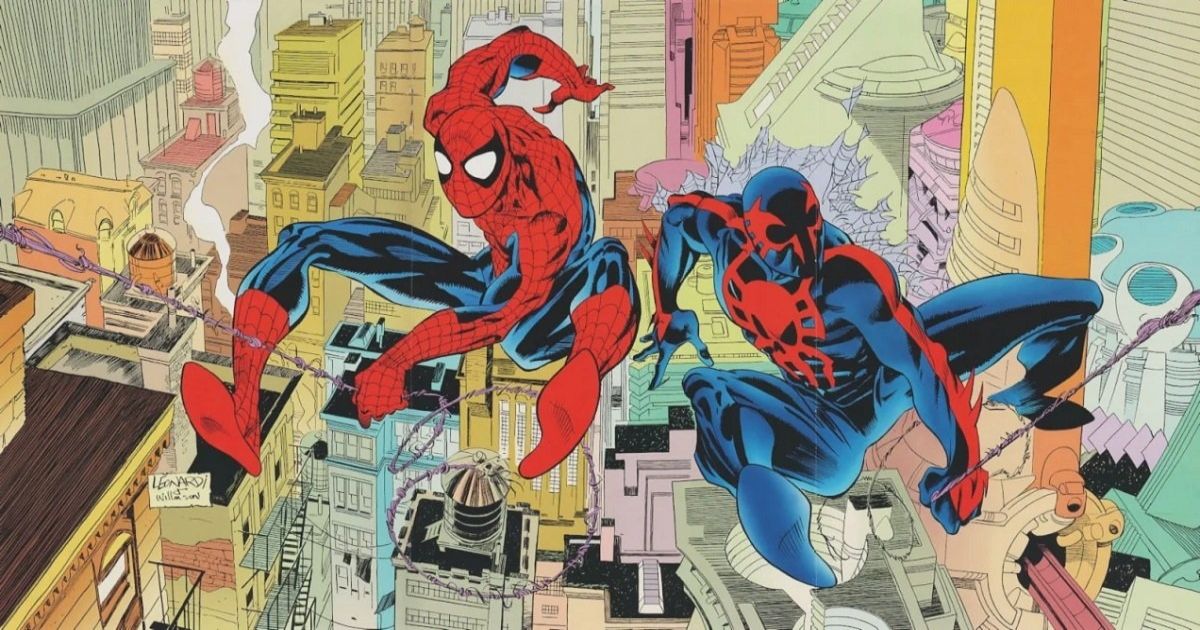Spider-Man: Across The Spider-Verse introduced fans to numerous versions of the classic web-slinger. One character that left an impression was Miguel O’Hara (voiced by Oscar Isaac), also known as Spider-Man 2099. The film painted Miguel as the most jaded and arguably cynical variant of Spider-Man. As the movie progressed, that cynicism turned him into a villain by the time the credits rolled. Miguel’s battle with Miles to let the death of Jeff Morales happen felt truly villainous. His actions in Across The Spider-Verse do not mean that he is an irredeemable character.
Miguel is a character that has been damaged by his dramatic history. He lost his daughter, which made him lose his purpose. It is that motivation from his loss and Miles’s passion for saving his father that Miguel should realize the error in his ways. For him to have a proper redemption arc, his fate could go in two directions. Miguel could be redeemed first through a more “typical” cinematic resolution.
Miguel Needs to Make a Heroic Sacrifice
Miguel’s origin story was a tale that already stemmed from a tragedy. His frustration toward Miles came from a place of sadness. Within Miles, he sees the same motivation that made him lose his daughter. When Miguel says, “You can’t save everyone,” it is not because he wants to hurt Miles. It’s because he does not want Miles to end up as broken and jaded as he is. To be properly redeemed, Miguel must realize that Miles was right all along.
Director Kemp Powers has made a note of Spider-Man 2099 not being the actual villain. With the film turning The Spot into a major villain, he has to commit a heinous act in Beyond The Spider-Verse. Whatever he does needs to shatter the multiverse for other Spider-Man variants. To really make an impression on Miguel, The Spot needs to kill another variant of his daughter. If that does not work, Miguel must see Spot kill Jefferson Davis in front of Miles.
Either scenario would make Miguel essentially have nothing left in his being. If he realizes his sole purpose is to protect the multiverse, he’d be ready to die for it, especially if his sacrifice might have had a chance to bring Jefferson Davis back. He could see this as a chance to earn the respect of other Spider-Men within the multiverse. A heroic sacrifice is not the only way for Miguel to be redeemed.
Miguel Needs to Step Down as the Spider-Society Leader
This option could go hand-and-hand with his “heroic sacrifice.” In Across the Spider-Verse, Miguel is introduced as a hardened leader. His “rule-follower” mentality was viewed as a strength. Granted, it made many of the others lose respect for him as the film progressed. There must be an event in Beyond The Spider-Verse that makes him realize his ineptitude. Miguel needs to understand that he is not the person to lead the Spider-Society to victory.
For Miguel to see the error of his ways, he needs to come to a realization. The film consistently refers to the concept of events that are “canon.” Beyond the Spider-Verse needs to debunk this theory. If the “canon” events theory were debunked, it would open the door for another multiversal possibility. This version of Miguel might not be the only one residing within the multiverse. He must meet another, less brutal version of himself residing in the Spider-Society.
A less villainous version of Miguel could have been hiding in plain sight. The version in Across the Spider-Verse seemed almost obsessed with his mission. If that obsession were to break him, it would be a perfect opportunity for a gentle Miguel. In fact, this “gentle Miguel” could be the variant that still has his daughter. Having a chance for the “good and bad” versions to speak could offer serious depth. Both versions could challenge the ethics and morals of their decisions.
If Miguel from Across the Spider-Verse is revealed to be an “evil double,” it would allow his decisions in the film to make sense. Miguel’s hatred and frustration with Miles could come from a place of villainous intention. Evil Miguel could even go as far as to have made an arrangement with The Spot. With his attempt to save the multiverse, he could have allowed the Spot to cause trouble. Their deal would most likely involve Miguel keeping control of the Spider-Society, while the Spot did what he wanted. A deal between the characters would give “Good” Miguel a chance to make a strong introduction.
Miguel O’Hara was the most morally complex character in Spider-Man: Across the Spider-Verse. His actions showed a character with a strict moral code with no room to break it. Miguel’s rule-follower mentality could have been from the mindset of someone in disguise. This version of being a villain could be a great way for the truly heroic O’Hara to save the day. No matter if he was an evil twin, it would also allow Miguel to make a heroic sacrifice. He would be able to redeem himself in the eyes of the Spider-Society and be a hero his daughter would be proud of.
This story originally appeared on Movieweb


